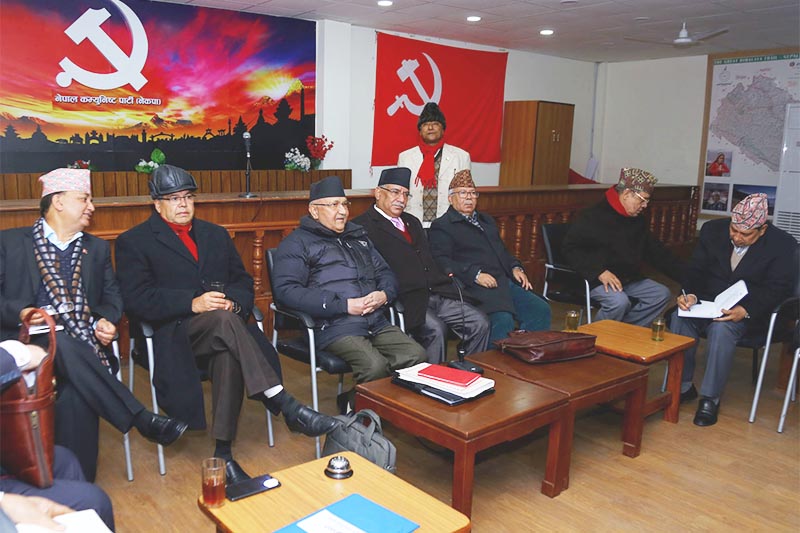Ruling NCP for consulting US before govt decides MCC fate
Kathmandu, December 22
The weeklong meeting of the Nepal Communist Party (NCP) standing committee ended today, concluding that the government should first seek formal opinion of the United States to ascertain whether the Millennium Challenge Corporation Compact Programme is part of the US-led Indo-Pacific Strategy, which also comes with a military defence component, before taking any further decision.
The agreement is pending parliamentary ratification.
The meeting, which saw an extensive debate on the MCC, unanimously concluded that there was nothing wrong in accepting the $500 million MCC assistance if it was not part of the broader IPS, but the MCC as an IPS component would be against the constitution that stated Nepal would pursue nonaligned foreign policy, according to NCP standing committee member Mani Thapa.
“Therefore, the meeting concluded that the government should communicate with the US authorities concerned and seek their formal opinion,” Thapa told THT.
Thapa said the meeting also concluded that the government should submit formal reply from US authorities to the party which would then be discussed in the NCP’s central committee meeting slated to be held in Kathmandu on January 8. On MCC requirement that Nepal needs to enter into an agreement with India on power trade, the meeting concluded that a third country could not be mentioned in a bilateral agreement.
In the standing committee, Bhim Rawal and Dev Gurung had raised concern about the MCC being part of the IPS. In his reply, Minister of Foreign Affairs Pradeep Gyawali said MCC and the IPS were two different things.
IPS is a US-led strategy that advocates and works for free and open Indo-Pacific region that operates under rules-based international order. The IPS has three pillars — military-defence, governance and economics.
On the other hand, the MCC is an independent US foreign assistance agency established in 2004. Nepal and the MCC entered into an agreement in 2017 to implement the $500 million compact for the development of roads and power transmission lines. US President Donald Trump then coined the term ‘Indo-Pacific Strategy’ towards the end of 2017 after the pact was signed.
Gyawali said there was no need to link the two because Nepal signed the MCC compact before the term ‘IPS’ was coined. He said Nepal interpreted the MCC Compact as a development partnership and nothing else, and that Nepal would never be a part of any military alliance.
However, US government officials have time and again said the MCC is an important component of the economic pillar of the IPS. Moreover, Indo-Pacific Strategy Report published in June by the US Department of Defence stated that the US sought to expand its defence relationship with Nepal.
The standing committee concluded that the NCP secretariat needed to be clear whether MCC was part of the IPS before discussing the issue again in the central committee meeting after 15 days, according to Bhim Rawal.
“The US should officially communicate that the MCC is not part of the IPS and remove Nepal’s name from the Indo-Pacific Strategy report. The government should take necessary initiative for the same,” Rawal told THT. He added,
“The standing committee is unanimous that the constitution does now allow subscribing to the MCC if it is part of the IPS






